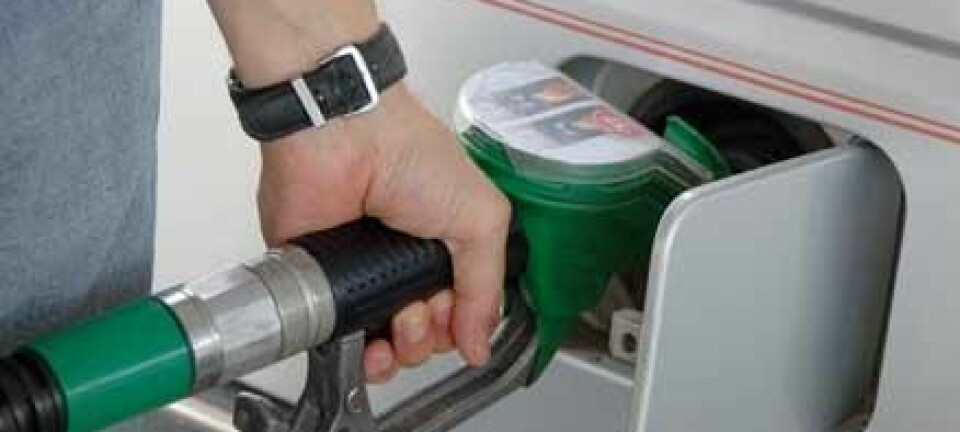
Earmarked taxes can finance elder boom costs
We will be twice as wealthy in 2060 as we are today. But it’s doubtful that we will be eager to pay more taxes – unless we know what the money is going to.
Denne artikkelen er over ti år gammel og kan inneholde utdatert informasjon.
The baby boomers are currently retiring and a demographic tidal wave of old people is about to break on us. In Norway it’s called the Elderly Wave. Elsewhere it is known as the Elder Boom – the elder burden. In Norway it is not hard to find reports emphasising the problems that will be encountered when the ranks of the elderly double in just ten years.
But the elder boom is not really a boom. At least not in the sense that it is a cresting wave – it’s more like a rise in sea level. If life expectancies continue to increase, countries like Norway will go on being a place for old men and old women.
“As of 2025 we'll get a steep hill that we can’t see the end of. From that year the state’s public expenditures will outpace the tax base,” says Erling Holmøy, research manager at Statistics Norway.
The state will be struggling, a bit like Sisyphus, on that uphill slope – even if mean incomes for individual Norwegians will be higher than today, as seen in some prognoses.
Earmarking taxes

Norwegians will probably have to pay higher taxes to finance their welfare schemes after 2025 to keep them on par with those of today. But higher taxes are unpopular.
Little indicates that people will be volunteering to shell out a larger share of their incomes – even if they have become richer.
Economists have pondered the problem and come up with a proposal they think will make the future easier for Norwegian politicians: Earmarked taxation.
“Earmarked taxation could be something to consider because it promotes appreciation for the fact that higher tax rates are necessary,” says Holmøy.
A functional system
Studies by the Fafo Institute for Labour and Social Research and others confirm that Norwegians are more willing to pay taxes if they know their money is going to something they see as worthy.
Earmarked taxation means that all or parts of the revenues of a duty or tax are used for specific purposes, rather than simply filling up the state coffers. For instance all the money made from the excise duty on cigarettes can go to preventive health initiatives and to cancer treatment.
Holmøy doesn’t want to paint a gloomy picture of the situation. But he thinks it is naïve to think the costs of elderly care won’t increase when the population is composed of many more old people.
That care and social security will demand quite a lot more money, actually.
“The political debate is dominated by too much wishful thinking. The elderly of the future will have a greater need for health care services and this doesn’t come for free,” Holmøy said.
Politicians are sceptical
Earmarking tax income is a common practice in many countries.
Steffen Kalbakken of the Centre for International Climate and Environmental Research (Cicero) points out that Norwegian politicians have generally been sceptical about this type of earmarking.
He has researched earmarked taxation with regard to environmental protection.
“The politicians are negative because this leaves them with less flexibility.”
“They don’t want to forfeit their rights to prioritise various causes when passing a government budget. That's the biggest disadvantage with earmarked taxation, it can make for a very rigid use of public funds,” says Kalbakken.
“For instance, the government can choose to earmark all its revenues from petrol tax toward public transport. But the proceeds from the petrol tax are not equivalent to a sum that would be smart to use on public transport systems in Norway. By refraining from earmarking the tax, politicians keep their options open and can be more flexible in deciding how to spend government money,” he said.
Yes to higher taxes
A study by Kallbekken a few years ago indicated that Norwegians might be more willing to pay tax if they know their money is going towards something they support.
However, the Cicero researcher wasn’t looking at the health sector in that study. It was about the environmental sector. But he thinks his findings are transferrable.
“Our study shows that Norwegian are willing to accept an increase in fuel taxes if the increases are earmarked for dealing with environmental problems. But we see clear indications that for the earmarks to have a positive effect, the tax revenues must be dedicated to initiatives in the same sector from which they were levied,” says Kalbekken.
---------------------
Read the Norwegian version of this article at forskning.no
Translated by: Glenn Ostling
































